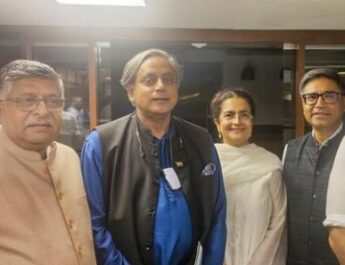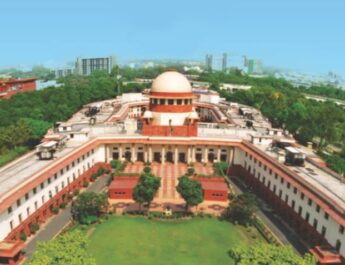Sheikh Hasina, Muhammad Yunus
New Delhi: On Monday, the interim government of Bangladesh announced that it has dispatched a diplomatic note to India requesting the return of deposed Prime Minister Sheikh Hasina to Dhaka. Sheikh Hasina, aged 77, has been residing in exile in India since August 5, when she fled the nation amidst student-led protests that resulted in the end of her 16-year administration. The International Crimes Tribunal (ICT) based in Dhaka has issued arrest warrants for Hasina, along with several former Cabinet ministers, advisers, and military and civil officials, on charges of “crimes against humanity and genocide.”
Touhid Hossain, the Foreign Affairs Adviser and effectively the foreign minister, informed reporters at his office, “We have sent a note verbale to the Indian government indicating that Bangladesh seeks her return for the judicial process.”
Earlier that day, Home Advisor Jahangir Alam stated that his office had sent a letter to the foreign ministry to facilitate the extradition of the ousted premier from India. “We have submitted a letter to the foreign ministry concerning her extradition. The process is currently in progress,” he remarked in response to a question.
Alam further noted that an existing extradition treaty between Dhaka and New Delhi would allow for Hasina’s return to Bangladesh under its provisions.
‘Fallen autocrat Sheikh Hasina’
Last month, during a national address marking the conclusion of the interim government’s first 100 days, Bangladesh’s Chief Adviser Muhammad Yunus announced plans to pursue the extradition of Sheikh Hasina.
“We must ensure justice for every act of killing… We will also request India to return the fallen autocrat Sheikh Hasina,” he stated. Yunus, who took office on August 8, asserted that approximately 1,500 individuals, including students and laborers, lost their lives, while 19,931 others sustained injuries during protests against Hasina’s administration.
In October, Law Adviser Asif Nazrul reportedly indicated that Bangladesh would mount a strong protest if India attempted to deny Hasina’s extradition by referencing any clauses in the treaty.
In a September interview with PTI in Dhaka, Yunus remarked that Hasina’s political statements made from India represent an “unfriendly gesture,” emphasizing that she should refrain from making comments to avoid causing discomfort to both nations until Dhaka formally requests her extradition.
“If India wishes to retain her until the Bangladeshi government seeks her return, the stipulation would be that she must remain silent,” he added. In recent weeks, Hasina has accused the Yunus-led interim government of committing “genocide” and failing to safeguard minorities, particularly Hindus, since her removal from power.




